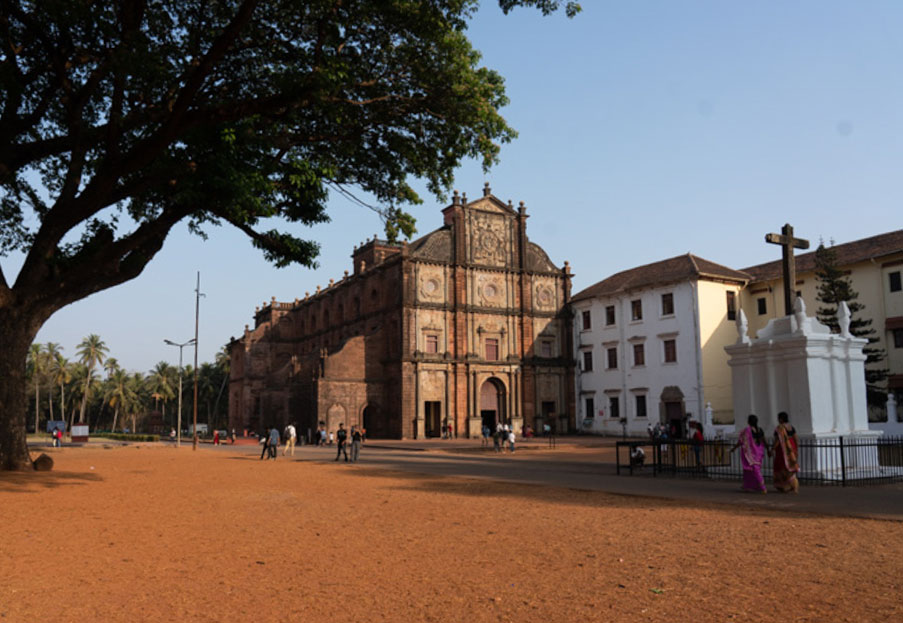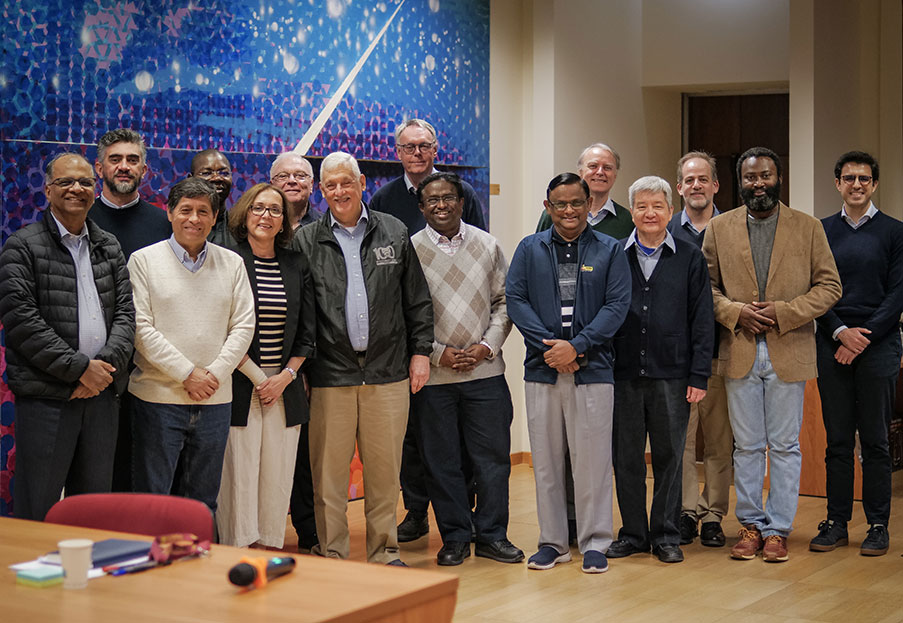Lent: to take selfies of our inner self
Father Arturo Sosa gave his first public homily in Nepal the day after Ash Wednesday in Kathmandu, as part of a celebration of the final vows of two Jesuits from the Region of Nepal: Roy Sebastian and Juel Kispotta. Here is the gist of his text.
‘Selfie’ is a buzz word today. People take ‘selfies’ on their mobile phones, upload the pictures in their Facebook or WhatsApp accounts and wait for “likes”. A ‘Selfie’ shows our outward self. However, each of us has the inner self too. Lent is the time to take ‘selfies’ of our inner selves and upload in our accounts and see how many “likes” we receive from God.
We are at the beginning of Lent which is a call to a desert experience, where all else is silenced and God alone begins to matter. Yesterday we signed ourselves with blessed ashes, a sign of our readiness to discover the spark, the fire hidden in these ashes and to embrace wholeheartedly the call to conversion and wholeness. In today’s gospel, Jesus puts before us the cost of discipleship. Suffering and self-denial are the hallmarks of discipleship.
The invitation of Jesus today is powerful, and his words are direct and clear:
- If anyone wants to come with me, he must forget self, take up his cross every day, and follow me.
- For whoever wants to save his own life will lose it, but whoever loses his life for my sake will save it.
- What gain, then, is it for a man to have won the whole world and to have lost or ruined his very self?
The first reading places before us two choices – self-preservation or dying to oneself, to experience death or real life, life to the full, what Jesus wishes for each one of us (John 10:10). Every of us, instinctively, would want to preserve our life. However, each one of us also has an inner desire to make spiritual advancement and move closer to God. The choice placed before us is to be self-centered or God-centered. The former brings “death”, the latter brings “life”. The words and invitation of Jesus in today’s gospel are a call to conversion, to experience “life”. The call is counter-cultural and far from what the world honours, praises, desires and advocates. Dying to oneself is not pleasurable; far from it, it is painful. However, there is no growth without pain.
The cross that Jesus is talking about is not the cross that comes out of our own making, due to our insensitivity, our foolishness, our own failures to live up to our calling, our isolation from reality and our clinging to privileges. The cross that Jesus is calling us to carry are the hardships, insults, reproaches and injuries we will face if we dare to live by Jesus’s values and follow the challenges placed before us in today’s gospel.
The choice is clear but not easy. We find ourselves pulled in both directions. We do the very things we do not want or wish to do. We need conversion. The first reading is an invitation to discern between choices that bring life and those that bring death. Discernment is one of the essential characteristics of our Jesuit way of life and is one that can truly foster conversion. Discernment is a way of listening to our deepest desires and the desires that God has for each one of us here and now. We are invited not only to choose “life” for ourselves but also to help others along the way to also choose life.
In terms of the situation here in Nepal, we are called to discern the works we are involved in, so that we bring life to the people who are suffering and on the throes of death. Today, personal, ethnic, political and economic self-preservation has pushed millions of people to the periphery of the society leaving them vulnerable, excluded and impoverished. The April 2015 devastating earthquake left many Nepalese homeless, and many children orphaned and vulnerable. Many tea garden tribal workers, in spite of being born and living in Nepal for years do not have Nepali citizenship.
Assertion of ethnic and religious identity is on the rise in Nepal. On a few occasions, Nepal has experienced disruption due to ethnic and religious intolerance. Nepal has been an abode of great religions, cultures and traditions. However, the younger generation is drifting away from God. There is a spiritual vacuum among the youth. Materialism has overshadowed spirituality. Corruption is almost institutionalized. These are some of the concrete realities we are called to face and work with in Nepal.
Hopefully, a deep reflection on the 4 UAPs that the Holy Father has confirmed and missioned the Society to, will help us discern and bring about a much needed individual, communitarian and institutional conversion to choose what is more conducive to promote the Kingdom, in the context of the current socio-economic-political realities of the country.







